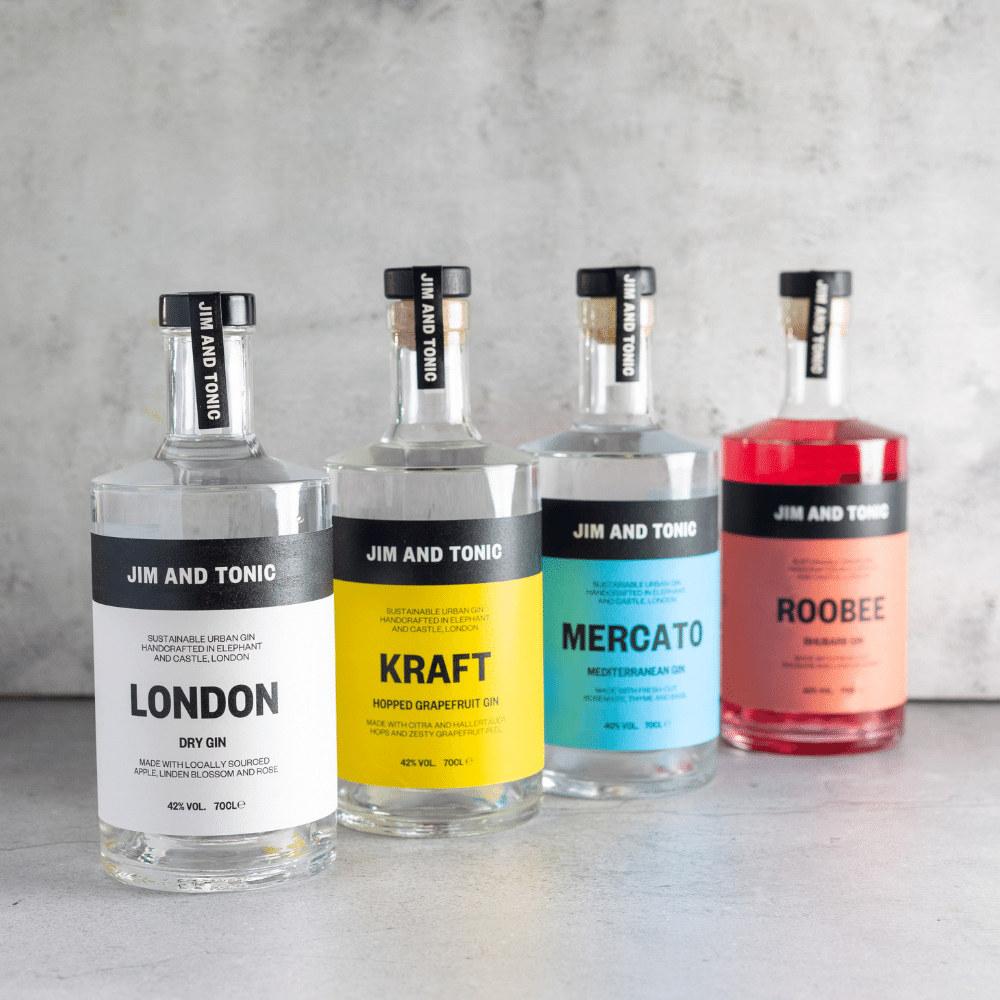Two of the most widely consumed alcoholic beverages are gin and vodka, but many people don’t understand the subtle distinctions between them. While these two clear spirits may appear to be similar on the surface, some key differences set them apart.
This guide will provide you with a thorough overview of the subtle distinctions between gin and vodka and help you understand the unique characteristics of each one.
Origin Story
The origins of both gin and vodka can be traced back to the Middle Ages. While both are distilled spirits made from potatoes, grains, grapes or other agricultural products, their historical development and current recipe requirements vary widely.
Gin began its life in the Netherlands, where distillers created the spirit from juniper berries (known as genever) in the mid-12th Century. Over time, recipes evolved and became popular all over Northern Europe.
It eventually arrived in England, which further developed the spirit into the modern style people recognise today, known as London dry gin. This style of gin relies on botanicals in addition to the traditional juniper berry to create its distinct flavour, a hallmark of the spirit today.
Vodka, on the other hand, began its long history in the medieval countries of Northern and Eastern Europe. Unlike gin, which relied on added flavours or botanicals, vodka was created as a taste-free, largely odourless spirit.
Although it hasn’t been around as long as gin, vodka has certainly made an impact: It’s now the most popular distilled spirit in the world.
Distillation Process and Ingredients
One of the most noticeable differences between gin and vodka is the distillation process and ingredients used. Gin is made primarily with juniper berries and a variety of other botanicals, while vodka is made typically with potatoes, grains, or a combination of the two.
Gin is typically produced through a process of redistillation, wherein the base spirit is redistilled with botanicals to create its unique flavour.
Generally, juniper and coriander are the predominant botanicals used in the gin, with other flavourings such as citrus peels, angelica, anise, and more. In many cases, the juniper can be tasted even without added botanicals.
Unlike gin, vodkas are typically distilled without added botanicals, with more emphasis placed on creating a neutral spirit with a smooth texture. Among the ingredients typically used for vodka production are grains, potatoes, and sometimes grapes, as well as other flavourings like fruits or spices.
Taste
The distillation process and ingredients are integral to the flavour profile of both spirits. While vodka is intended to be a relatively flavourless and smooth drink, gins can vary greatly in taste, depending on the kind of botanicals used in its production.
Given its distinguishing botanicals and the redistillation process, gin usually has an earthy, aromatic flavour with hints of juniper, citrus, and other spices. It can range from light and refreshing to thick and full-bodied, making it a great base for complex cocktails like the classic gin and tonic or martini.
By contrast, vodka is usually meant to have a neutral, smooth taste with minimal characteristic flavour, making it a more versatile spirit when compared to gin.
This can be great for those looking for a simple, straightforward experience in their drinks but not as great for those looking for a wider variety of flavours.
Mixing
When it comes to mixing, gin and vodka offer different advantages. While gin is a great base for well-rounded cocktails with a more complex flavour profile, vodka is a more suitable option for those looking for a straightforward taste.
Gin works well with various flavours, including floral and herbal notes like lavender and rosemary, as well as more fruity flavours like citrus or pineapple. Some of the most well-liked gin-based drinks are the martini, negroni, and classic cocktails like the gin and tonic.
On the other hand, vodka is the spirit of choice in simple drinks like vodka and soda or vodka tonic. It also goes well with other ingredients like cranberry juice or citrus, which can help mask its neutral taste.
Conclusion
Gin and vodka are both popular spirits but have distinct flavour profiles. Gin is preferred for cocktails because of its unique flavours, while vodka is often used as a base for mixed drinks.
While both spirits can be enjoyed neat, they are used in different types of drinks. Knowing the subtle distinctions between gin and vodka will help you create the perfect drink, whether you’re a fan of classic martinis or fruity cocktails.
Looking for an East London gin? Look no further than our range of gins on our online shop.












